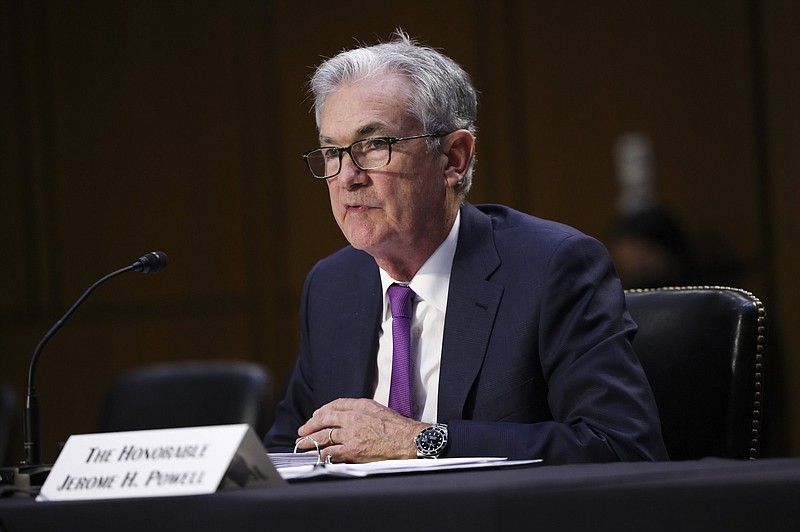WASHINGTON -- Resistance to the potential renomination of Federal Reserve Chairman Jerome Powell intensified this week, with Sen. Elizabeth Warren becoming the first senator to publicly oppose him and many progressive groups pushing for some alternative leader at the Fed.
Powell receives generally high marks from economists and Wall Street for his actions in steering the economy through the pandemic recession. But he has come under fire from some progressive groups around issues that are traditionally not major points of contention when the Fed's leadership is considered, such as financial regulation, or have never come up before, such as climate change.
Powell's term will expire Feb. 5, and most analysts say he's still likely to be renominated and confirmed by the Senate for a second four-year term. But his future seems less certain than it was a month ago.
The White House declined to say Wednesday whether President Joe Biden had decided on a Fed chairman or what influence Warren's statements might have but said Biden is still consulting with his economic team on the matter.
Warren, who was among 13 senators to vote against Powell in 2018 when he was first nominated for the Fed chairmanship by President Donald Trump, is so far the only senator to publicly oppose him this time. Powell has been endorsed by several liberal and moderate Democrats, including Sen. Richard Durbin of Illinois and Sen. Jon Tester of Montana, and has broad Republican support in Congress.
Still, at a Senate hearing Tuesday on the government's support for the economy, Warren argued that Fed actions under Powell have weakened bank regulations that Congress passed after the 2008 financial crisis.
"Over and over, you have acted to make our banking system less safe," Warren said. "And that makes you a dangerous man to head up the Fed, and that's why I will oppose your renomination."
The Powell Fed has revised many bank rules that were established after the 2008 financial crisis -- a catastrophe that nearly toppled the financial system and led to huge taxpayer bailouts for the largest U.S. banks. Groups such as Americans for Financial Reform, a progressive nonprofit, say that, among other steps, Powell has reduced the capital that banks are required to hold to ensure they remain solvent. They also say that he has weakened the Volcker Rule, which restricts banks from trading with money that is federally insured.
Former Rep. Barney Frank, and former Sen. Chris Dodd, who crafted legislation that tightened bank rules after the 2008 crisis, co-wrote a column endorsing Powell earlier this month in The Hill newspaper.
The unusually intense focus on Powell's regulatory record partly reflects the fact that his extensive efforts to support growth and hiring coincide with Democratic goals. Powell has prioritized putting as many Americans back to work as possible, while worrying less about inflation. Past Fed chairmen have been quicker to raise rates to forestall high inflation, a move that can slow job growth.
Still, many progressive activists argue that such issues as financial regulation and climate change are just as critical to the Fed's goals of full employment and stable prices. With rates low, they argue, regulation is particularly important now because low rates often inflate asset bubbles, which can derail the economy once they burst.
Information for this article was contributed by Josh Boak of The Associated Press.

